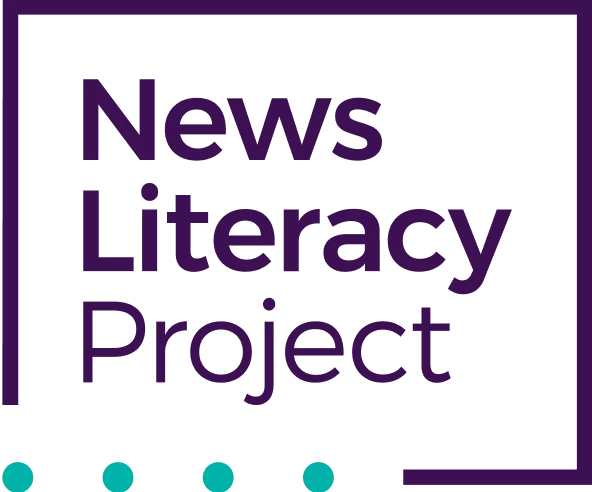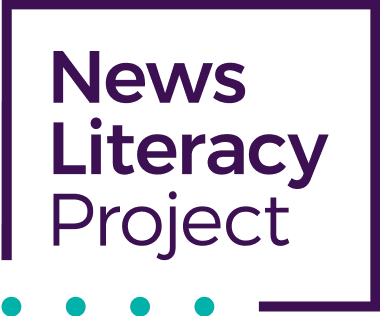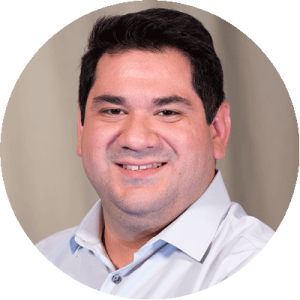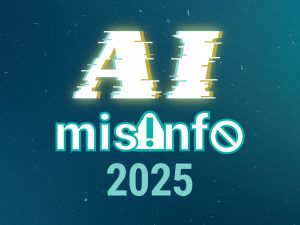Empowering future engineers: An educator’s innovative approach to news literacy
When educator Kelly Melendez Loaiza recently saw an image of a trash-filled catch basin online, she looked past the wet garbage in a hurricane-flooded road and spotted the intersection of news literacy, science and current events.
Melendez Loaiza, who has been teaching for 18 years, joined Davies Career & Technical High School in Lincoln, Rhode Island, this fall to lead its new environmental engineering program, part of the school’s pre-engineering career path. But she has been weaving news literacy into her classes since 2016, when she developed a Science and the Media course at a Massachusetts high school.

“If we’re paying attention, we can pull current events in and make media literacy relevant for students,” said Melendez Loaiza, who builds her curriculum around NLP’s Checkology® virtual classroom. “Those lessons are incredible. I couldn’t teach this without Checkology.”
For example, on a recent afternoon, a class of sophomores explored logical fallacies using Checkology’s “Arguments and Evidence” lesson in the context of the pros and cons of nuclear energy, the topic they are currently studying.
Why news literacy matters
Environmental engineers need to be news-literate, Melendez Loaiza believes, because they design systems to protect air, water and the land at the societal level and must interact with community leaders and the public about their work. “They need good communication skills to understand the problems they are trying to solve and the values of the communities they are working with to design solutions that meet the needs of the people being served.”
The catch basin example provided what at first glance looks like a simple issue of trash in a street. But it provides an opportunity for students to use news literacy skills to explore a topic from several perspectives, identifying multiple pathways for solving complex problems. “I bring media literacy back to the science,” she said. “It’s needed to open our minds to all the angles of the problem.”
When her students begin thinking in media literacy terms, the parallels with how they ponder science and engineering emerge and complement one another. Ultimately, it improves their overall critical thinking skills, she said.
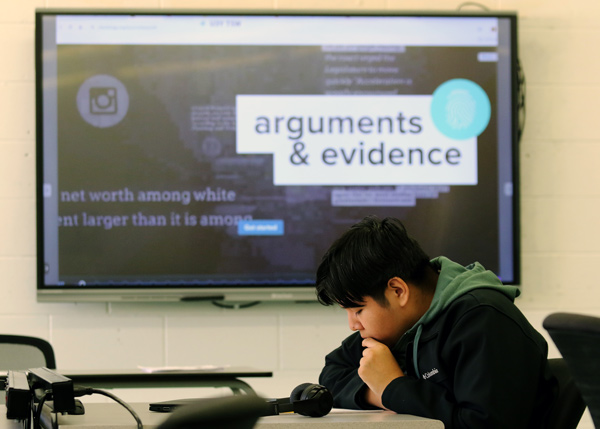
Students want news literacy education
Melendez Loaiza found that when students begin to practice news literacy, they wonder why they hadn’t been taught it earlier. This sentiment jibes with a key finding from NLP’s newly published study, News Literacy in America: A survey of teen information attitudes, habits & skills (2024): 94% of teens say that schools should be required to teach media literacy. “This should be a basic skill,” student Xavier Dias noted.
Students have also said that learning news literacy skills changed how they engage with others on topics when they disagree. They’ve learned to listen and see arguments from multiple perspectives. “They felt ready to engage in civil discourse because what they had learned quite literally changed them,” Melendez Loaiza said.
Not all information is equal
Melendez Loaiza began her news literacy instruction at Davies High School with the Checkology lesson “InfoZones.” It describes the primary purposes of different types of content, teaching students that all information is not equal. “There can be more to the story than how it’s portrayed,” observed student Jacob Xajap.
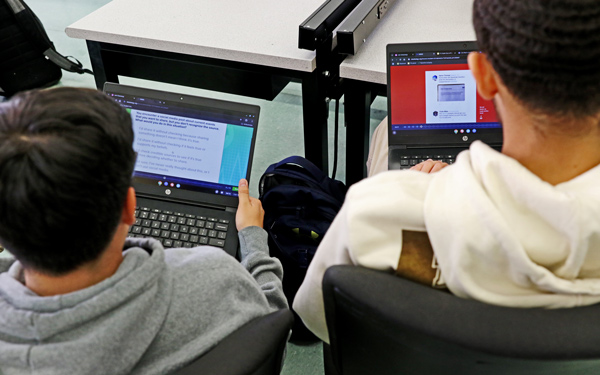
His classmates also demonstrate understanding of other news literacy key concepts. “When I’m scrolling the news, it’s important to me if there are multiple sources to see if it’s true,” said Aidan Baptista, who recognizes the broader impact of what he is learning. “I feel like it will help me to be more open minded when approaching news and other information.”
‘It can change people’
Melendez Loaiza also teaches Checkology’s “Conspiratorial Thinking” lesson exploring the psychology behind beliefs in this form of misinformation, which teens often encounter. In fact, NLP’s recent survey found that 80% of teens on social media say they see posts that spread or promote conspiracy theories, and of those, 81% say they are inclined to believe one or more.
Student Maddy Lefebvre said that when she encounters likely conspiracy theories, she now has the awareness not to be fooled. “I’ll personally look into it more before believing it.” Classmate Joshua Malmberg agreed. “There’s always something that doesn’t make sense.”
Melendez Loaiza is confident that teaching these future environmental engineers to become more news-literate will help them outside the classroom. It will make them better able to understand current events, be curious but not cynical and communicate with empathy, all of which will be required in their professional lives.
“Every little piece they learn about media literacy is another piece of the puzzle in understanding the world,” she said. “When people are exposed to this in a supportive environment, it can change people and change the world, I believe, for the better.”
